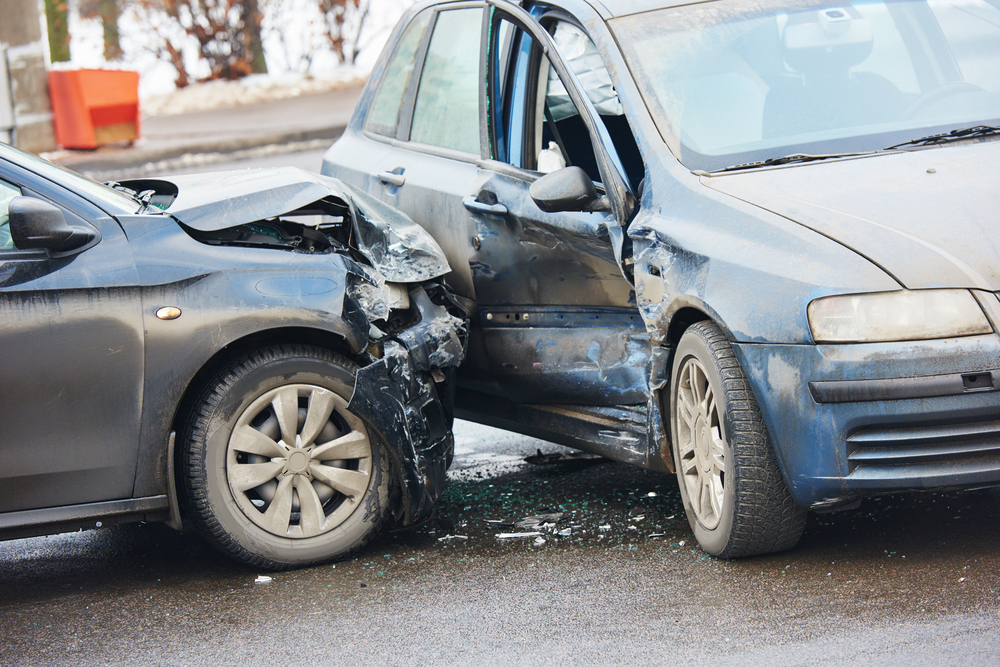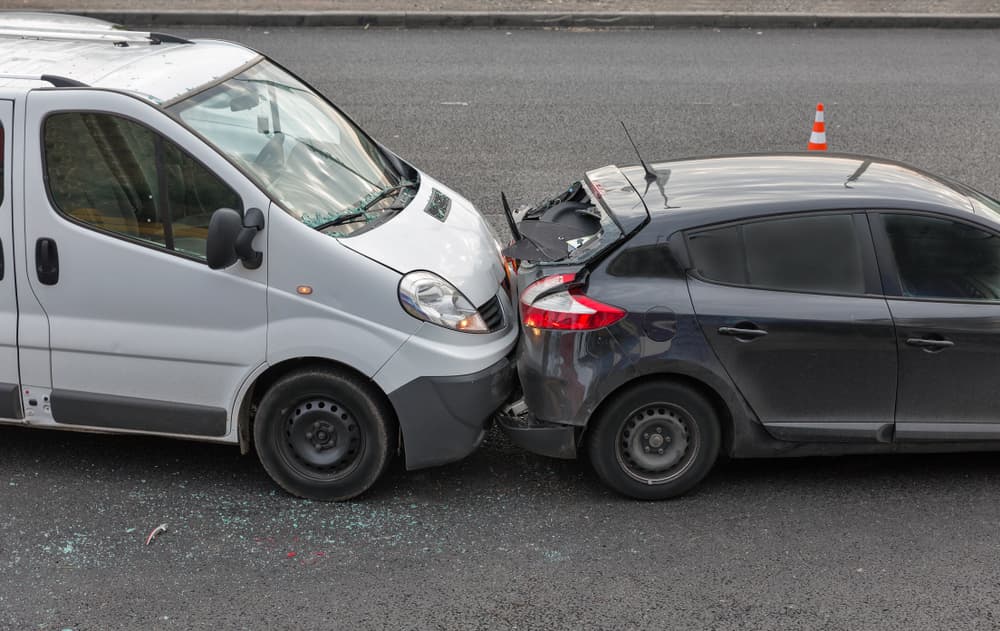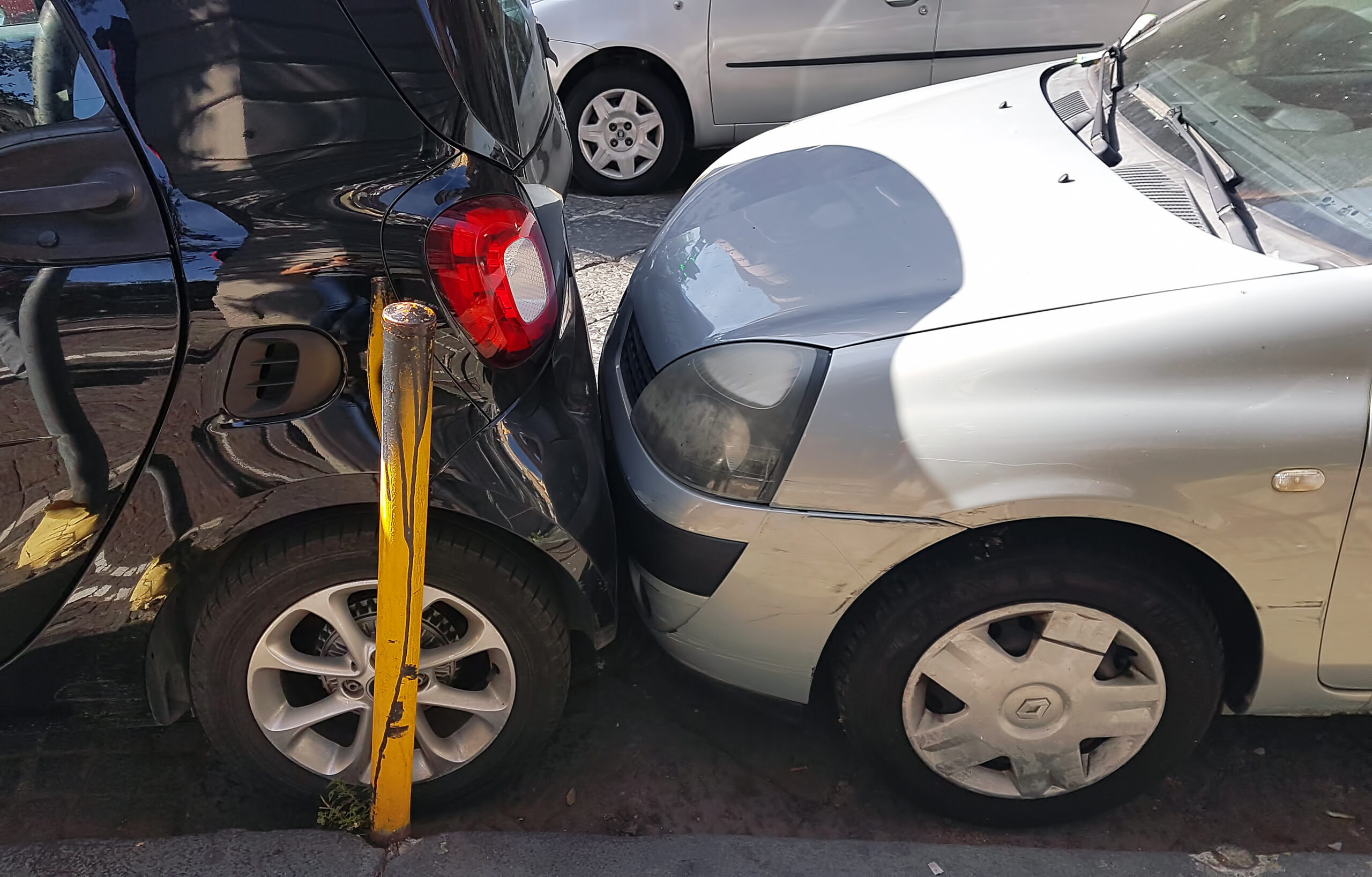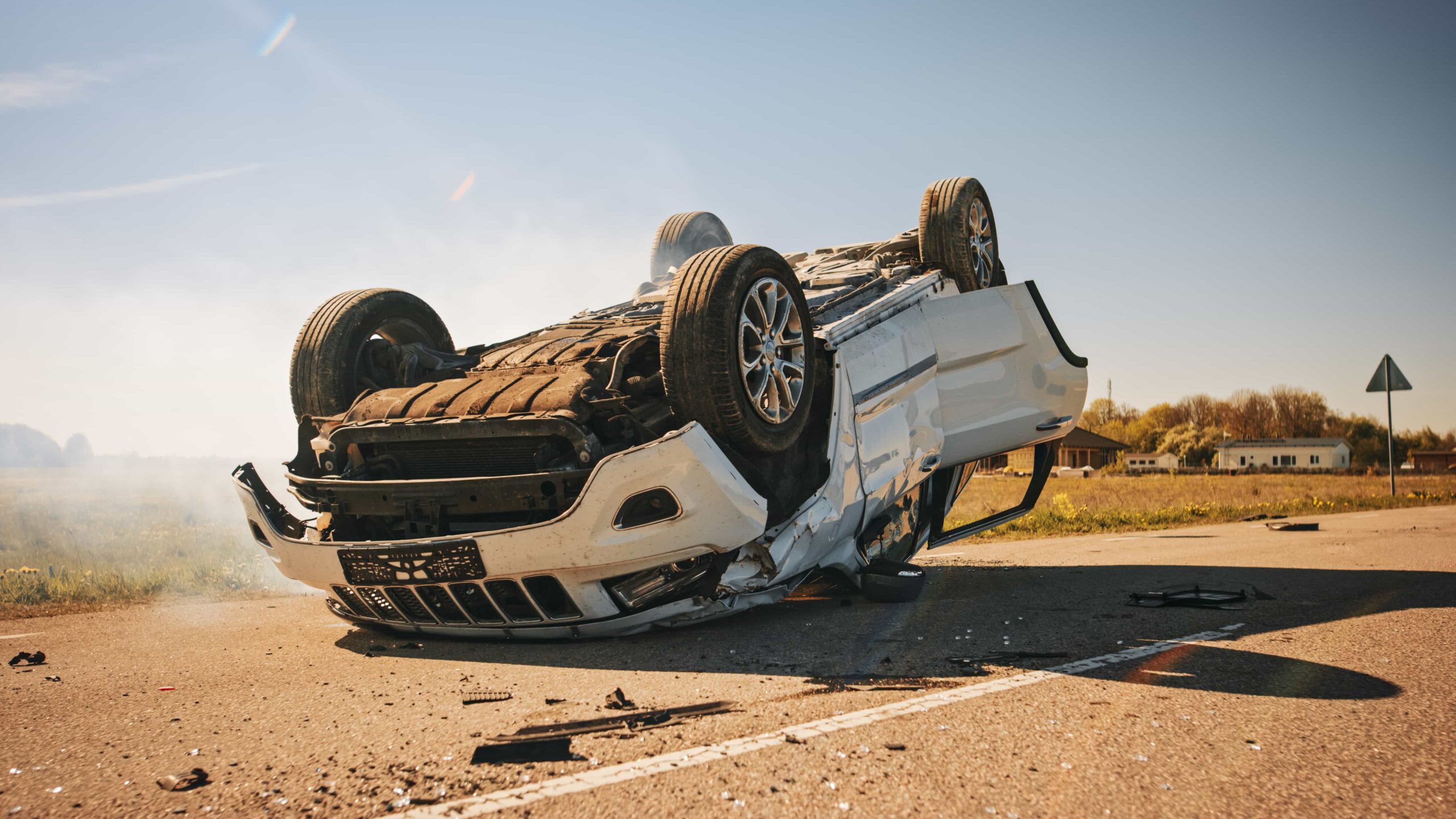If a driver in Chicago hurt you while under the influence of marijuana, they may have committed both negligence and a criminal offense. Regardless of whether they face any criminal penalties, you should hold the motorist (and any other liable party) financially responsible for the cause they’ve caused you.
Even if it’s not possible to prove impairment, a motorist is responsible when they cause a collision. Allow a Chicago car accident lawyer to represent you. Your attorney will work to prove the motorist’s impairment, prove their fault for the accident, and fight for a fair settlement for you—all while protecting your rights.
Is It Illegal (or Negligent) to Drive Under the Influence of Marijuana in Chicago?
Illinois law dictates that even if a motorist is prescribed marijuana (also known as cannabis, they “may not operate a motor vehicle while under the influence of cannabis…”
Someone may be suspected of driving under the influence of marijuana if:
- They cause an accident
- The responding law enforcement officer has reason to suspect impairment by cannabis (which can include an odor of marijuana, blood-shot eyes, or other indicators)
- The officer conducts a field sobriety test
Circumstances will determine whether the driver must undergo blood testing or other procedures to determine if they’re legally impaired. However, you do not necessarily need definitive proof (like a blood test) to make the case that a driver was under the influence of cannabis when they caused your accident in Chicago.
How Marijuana Impairment Can Increase the Risk of Auto Accidents

While some consider marijuana to be harmless, a closer look reveals how drivers under the influence of marijuana pose a clear and present danger. It’s well-documented that marijuana can:
- Change mood
- Alter one’s thoughts
- Affect one’s perception of reality
- Negatively impact coordination and balance
- Diminish memory
- Have other effects that impair one’s ability to drive safely
Driving while under the influence of cannabis is illegal for good reason. Whenever a driver is anything but sober and alert, they become a lesser (and more dangerous) driver.
You Can Seek Compensation from the At-Fault Driver, Whether or Not Marijuana Contributed to the Accident
If a motorist was likely or certainly under the influence of marijuana when your accident happened, it may strengthen your compensation case. However, even if there is no definitive proof that the driver was impaired, they may be liable simply because they caused the collision.
Marijuana impairment itself is not typically why accidents happen. Instead, impaired individuals are more likely to engage in dangerous behaviors like:
- Speeding (or driving dangerously slow)
- Braking erratically
- Becoming distracted
- Tailgating
- Changing lanes dangerously
- Running red lights and stop signs
- Failing to give other motorists the right of way
Part of your lawyer’s responsibilities will be to investigate why your accident happened. They will document any instance of negligence by the at-fault motorist. The evidence they collect can be a key piece of your case.
Motorists Who Are Under the Influence of Marijuana May Engage in Other Irresponsible Practices
It is important to hire a lawyer after an accident involving a motorist who is under the influence. If the driver was careless enough to drive while on cannabis, they may also:
- Drive an unregistered vehicle
- Lack insurance (or have bare-bones coverage)
- Leave the accident scene
- Blame you for causing the accident
- Fail to cooperate with the claims process
These are just a few of the countless complications that can make your case more difficult. When you have a skilled accident attorney handling your insurance claim or lawsuit, you don’t have to suffer such headaches.
What to Do After a Marijuana-Related Car Accident in Chicago
Car accidents introduce a host of challenges you surely don’t want to deal with. While your recovery is an obligation only you can handle, you don’t have to deal with insurance claims or lawsuits related to the accident. Let a lawyer do that.
Your two most urgent priorities after your accident should be:
Seeking Medical Care
Impaired drivers often hit their victims at high speeds, as they can be oblivious to an impending accident. Every victim of an impaired motorist must seek medical care to ensure:
- They are not in immediate danger of health-related complications
- They get accurate diagnoses for their accident-related injuries
- They know what to do to promote healing after the collision
- Nobody (including insurance companies) can claim the accident victim is lying about their injuries in any way
Insurance companies can be shameless in their attempts to avoid financial liability. You would not be the first car accident victim to be accused of exaggerating injuries or seeking compensation for ailments you had before the accident occurred.
If you are unsure where to seek medical care, hire your Chicago auto accident lawyer, and they will refer you to a provider.
Finding Your Attorney
Hiring your car accident attorney is a responsibility that can’t wait because:
- There are often deadlines for reporting injuries and filing insurance claims.
- There are deadlines for filing personal injury and wrongful death lawsuits in Illinois.
- Liable parties may try to dispose of evidence soon after your accident.
- Insurance companies or other liable parties may pressure you to give statements, accept lowball settlements, or take other actions that may harm your case.
Car accident lawyers serve clients throughout Chicago, from the South Side to Hyde Park, Oakland, Cicero, and beyond. You deserve capable representation if you suffered an injury walking in the West Loop or were involved in a collision on an obscure street.
Thinking About Hiring a Car Accident Lawyer? Here’s Why It Is Worth It
Countless car accident victims in Chicago have hired a lawyer without being sure of what to expect. A large portion of those accident victims look back on their decision to hire a lawyer with immense gratitude.
Hiring a lawyer should be an easy decision for you because:
- You can only handle so much after the accident: Injuries often require regular medical attention. You may also need plenty of rest. Odds are, you also have personal responsibilities that won’t come to a halt simply because you were in an accident. Do you need to add an insurance claim (or a lawsuit) to this full plate?
- A lawyer has been here before (they have priceless experience): When someone has been in a certain situation many times, they can proceed with confidence and efficiency. Your attorney’s prior experience handling marijuana-related car accident cases in Chicago will be a boost to your case’s prospects.
- Your car accident lawyer won’t ask you for payment: Auto accident lawyers offer their services without you paying a dime out of your pocket. This is possible because of contingency fees. With these fees, your lawyer receives a percentage of the settlement or verdict they obtain for you. You won’t have to pay a flat fee or, by the hour—either your lawyer succeeds or they don’t get paid.
- Law firms offer a rare degree of financial support: Your law firm will cover all costs associated with your case, but they won’t stop there. The most successful car accident attorneys hire experts and take other measures to create the strongest case possible.
- Your health, your health, your health (did we mention your health?): Your doctor will likely demand that you rest. You may also need regular treatment and possibly rehabilitation. These are time-consuming pursuits, and you may not have the time to focus on your health and handle your case.
Contingency fees mean hiring a lawyer comes at no direct cost to you. Your firm will not ask for an upfront fee, and they should ensure your bills get paid while they handle your case. If your lawyer wins, they will receive a percentage of your recovery. If they don’t, you owe the law firm nothing.
How Your Chicago Marijuana Accident Lawyer Will Lead Your Case to the Finish Line
Before you hire a lawyer, you should understand how significant their help will be. Your lawyer will handle every detail of your case and may take several steps that you would not have taken without a lawyer.
Some ways that your car accident lawyer will fight for your financial recovery include:
Proving How the Impaired Driver Failed You
Marijuana is relatively easy to access in Chicago, with dispensaries like Verilife, Sunnyside Cannabis Dispensary, and Sociale Dispensary located from Park Ridge to River North and throughout the city. This doesn’t even account for the illicit means of obtaining cannabis.
Yet, motorists have a duty to use marijuana responsibly—and that means refraining from driving while impaired. Your lawyer may prove that:
- The driver possessed marijuana at the time of your accident
- The driver was under the influence of marijuana at the time of the accident
- The driver’s impairment contributed to your accident
- The driver’s actions (which may or may not have been influenced by cannabis use) led directly to your collision
Your lawyer may use field sobriety test results, biological test results, statements from the impaired motorist, video of the accident, and several other types of evidence to prove these points.
Shielding You from Bad-Faith Insurance Tactics
Unless they choose to sue out of the gate, your lawyer will likely seek compensation from one or more insurance companies. These insurance companies may use several tactics as they try to save money, including:
- Denying your claim
- Claiming that you caused the collision (despite the other motorist being under the influence)
- Claiming there’s no proof that your injuries happened during the accident
- Refuting your lawyer’s valuation of your losses
- Dangling a lowball settlement offer
- Being stubborn during settlement negotiations
Your lawyer will have clear settlement demands based on objective documentation of your losses. They will stand behind these demands in the face of any bad-faith tactics by insurers.
Documenting All Damages Caused by the Impaired Driver
Some types of documentation your lawyer may use to secure the compensation you deserve include:
- MRIs, X-rays, and other images of your injuries
- Doctors’ testimony about your injuries (and the symptoms those injuries have caused)
- Medical bills proving the cost of accident-related treatment
- Income statements, employer testimony, and any other documentation proving your professional losses
- Invoices for vehicle repairs, replacement of property, and temporary transportation
If you’re suffering from PTSD, anxiety, depression, or other mental health difficulties, your attorney may have a mental health professional diagnose those conditions.
Calculating the Cost of Your Damages and Fighting for a Fair Settlement
The cost of your case hinges on the cost of each of your damages. Therefore, your lawyer will determine the financial value of all medical bills, pain and suffering, property costs, and other accident-related harm.
Once your attorney understands the total cost of your damages, they will present their settlement demands to the parties who owe you compensation.
Handling Any Necessary Lawsuit and Trial for You
When auto insurance providers don’t pay accident victims fairly, attorneys often sue. Your attorney will be ready to file your lawsuit and lead your case in a Chicago court if necessary.
Will I Need to Sue a Motorist Who Was Under the Influence of Cannabis?

Only time will tell if you need to sue following your marijuana-related car accident in Chicago. Many accident victims receive fair compensation through the insurance claims process—though, in many cases, it takes a fight to secure a fair settlement offer.
Your attorney will advise you about whether to sue. If you do choose to file a lawsuit, defendants may include:
- The motorist who caused your accident
- The City of Chicago, if negligence on the city’s part (like failing to maintain safe roads) contributed to your accident
- An employer whose employee struck you while on the job
- Any other party whose negligence contributed to the accident (or who is responsible for another party’s negligence)
Let your lawyer handle these details. Rest up and follow your treatment plan.
Damages Your Lawyer May Seek Compensation for After Your Accident in Chicago
Some common damages among car accident victims include:
- Medical bills
- Lost income
- Pain and suffering
- Property costs
- Temporary transportation costs
- Mental health treatment costs
It is important to document these damages right away.
Contact a Chicago Impaired Driving Accident Lawyer Today
Hire your Chicago personal injury attorney right away so they can begin building your case immediately.



